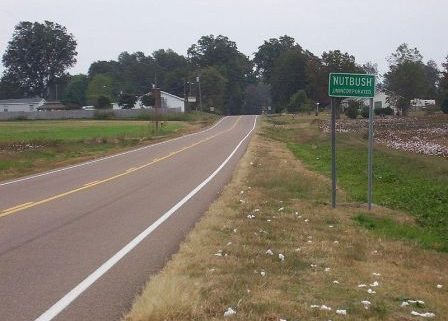Jurisdiction: Go The Extra Mile…Or Not
Criminals are extremely mobile, and, unfortunately for local cops, they normally don’t hang around waiting for detectives to come and get them. Therefore, police officers are often faced with jurisdictional issues.
Jurisdiction (according to Blacks Law Dictionary) is a geographic area in which a court has power or types of cases it has power to hear. For law enforcement officers, that jurisdictional boundary covers the area where they are sworn to protect and serve as police officers.
City and town officers are sworn to protect and enforce the laws of the city where they’re employed. County officers are sworn to protect and enforce the laws of the counties where they’re employed. State officers are sworn to enforce laws in their state, and federal officers are sworn to enforce laws throughout the country. And, in most cases, police officers aren’t allowed to conduct an arrest in any area that’s outside their jurisdiction. In fact, some arrests conducted outside an officer’s jurisdiction are considered illegal.
Unfortunately, bad guys aren’t held to such standards. Why, they’ve even been known to kill somebody in Florida and flee all the way to Washington state. The nerve of those guys. They just don’t abide by the rules.
So, when bad guys do flee the scene of a crime, officers issue warrants for their arrest, and they issue a BOLO (Be On The Lookout). Now when the crooks are spotted in Washington state, the Northwestern cops can make a legal arrest based on the information/outstanding warrant they’ve received from the authorities in Florida.
There are exceptions to the jurisdictional restrictions for police officers.
When can they go outside their home territory to apprehend a criminal?
1) During a hot pursuit. Officers can legally pursue a fleeing felon across jurisdictional boundaries as long as they maintain visual contact with the suspect. However, if the officer ever loses sight of the suspect the pursuit is no longer considered fresh, and they must terminate the chase (There are always exceptions. Remember, we’re talking about the law).

2) An officer can make a legal arrest outside his jurisdiction if she was responding to a request for assistance from another agency.
3) In some areas, as long as an officer has possession of a legal arrest warrant, she can serve it on the suspect anywhere in her state. (again, check local laws).
4) Many jurisdictions have a specified allowance of distance their officers may travel to make an arrest. This provision in the law is because there is no physical line drawn on the ground to determine the actual city limits. Officers acting in good faith may make an arrest within these provisional boundaries.

However, in Limestone County, Alabama, this law is in effect:
In Limestone, no police jurisdiction of a municipality located wholly or partially within Limestone county shall extend beyond the corporate limits of the municipality. (Amendment 499; Proposed by Act 88-306, submitted at the Nov. 8, 1988, election, and proclaimed ratified Nov. 23, 1988, Proclamation Register No. 6, p. 56).
5) Officers can make a citizens arrest anywhere in the country, just like any other person in the same situation.
6) Interestingly, Ohio state patrol officers have no jurisdiction on private property. Their arrest powers cover only operation and use of vehicles on highways and other roadways, and criminal investigations on state-owned property.
And, I feel compelled to answer the question I see asked almost every single day. Here goes:
NO, the FBI does not ride into town and take over cases from local police departments. They have other things to do. Besides, as a rule, the FBI doesn’t work murder cases. Local police departments, sheriffs offices, and state police are more than capable of handling their own cases. And they do.





Any local jurisdiction can ask for assistance from another agency. Towns and cities often request help from sheriff’s offices and state police. It’s definitely not uncommon. They all work well together, often.
Lee, North Carolina has a State Bureau of Investigation, and I believe South Carolina has a similar organization known as SLED.
If a local, perhaps rural, jusrisdiction doesn’t have the facilities to investigate and/or process crime scene evidence, could the SBI (N.C.) be called in? Or, I suppose, my question should be more concise: when is the N.C. SBI brought in on a murder case? (FYI – In my WiP, the murder occurs on the Biltmore Estate, in Buncombe County, not Asheville City.)
Citizen’s arrest. What are the rules? Are they somewhat universal? Can there be an international instance? Does it emanate from old English common law? A whole nother post?
The FBI investigates murder that occurs on federal land/property. They’d also investigate the homicide of FBI agents, senators, the president, etc. But local murders…no. However, they’re always available to assist if a local PD, sheriff’s office, or state police asks for help. Although, they’d serve in a support capacity, not as the lead.
In your case, the murder would be related to specific cases worked by the FBI, so yes, they’d handle the case. Especially if the homicide took place on the reservation.
Under what circumstances would the FBI investigate a murder rather than leave it to the local authorities? I actually need to know this for my WIP – else I need to change it.
My WIP concerns the theft of a high technology which is being developed under government contract. It will also involve organized crime and the sorts of corruption that follow their presence. The setting also happens to be near (and will much later cross over into) an indian reservation. All of these things are part of the FBI’s jurisdiction as investigative priorities. And it will be fairly clear from the beginning of the story that these different pieces are connected.
Maybe my question would be better phrased as, “How is the decision made regarding what the FBI investigates and who makes it?” If you happen to have an FBI contact that is willing to answer some specific questions I would be grateful. You have my email or get it from my blog and thank you for your time.
Sure, Bob. And that’s because the DUI, etc. is related to motor vehicles. Likewise, they can pursue a vehicle from public to private property and then make an arrest there.
Lee,
Can’t OHP (and any Ohio LE) make arrests for DUI and reckless op on private property – at least parking lots? My recollection is that ORC limits other traffic offenses to public roads, but DUI and RO are not restricted that way.